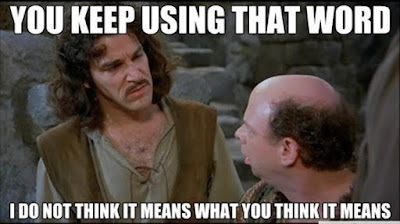I have several go-to sources from which I receive much of the motivations for my philosophies. One of these is a legal writer from the early- to mid-1800s, Frederick Batstiat. His most famous work, "The Law" contains a wide variety of interesting discussions on the role of government and the law. In this treatise, he wrote:
No society can exist unless the laws are respected to a certain degree. The safest way to make laws respected is to make them respectable. When law and morality contradict each other, the citizen has the cruel alternative of either losing his moral sense or losing his respect for the law. These two evils are of equal consequence, and it would be difficult for a person to choose between them.
A while back, I wrote about a new FAA regulation requiring model airplane enthusiasts to register radio controlled aircraft above a weight of 250 grams or 8.8 ounces: http://thoughtfulcynic.blogspot.com/2015/12/government-logic.html
The logic of this regulation can best be summed up as:
Recently, I've returned to flying model aircraft (a hobby I gave up in the late 1980's when other, more pressing activities were clamoring for my attention). In the last couple of years, I've built a small fleet of model aircraft built from dollar store foam-board and colored packing tape (including the one pictured above on the right).
While these models weigh a couple of pounds, this weight is spread over a rather large area. There could be no possible harm to anything or anyone caused by impacting one of these models. Further, model aviation enthusiasts have been operating safely for as long as there has been aviation. Over all probably 90+ decades of model aviation, I've only heard of 2 fatalities due to model aircraft. One of these was a death of the pilot when he was flying a radio controlled helicopter too close to himself and the blades caught him in the neck, the other was freak accident when a child was struck by an out of control aircraft. Heck, just as many children have been killed in cities by falling goats:
http://metro.co.uk/2014/10/07/boy-killed-by-sacrificial-goat-which-fell-from-roof-4896995/
So, what does this have to do with the world in general?
Let's go back to the most critical part of Mr. Bastiat's earlier quote:
The safest way to make laws respected is to make them respectable.
This FAA law/regulation is far from respectable -- it is contemptible. I am torn between an innate desire to follow the law, and a compulsion to reject such a despicable and contemptible government overreach that goes against my moral sense. Ultimately, I caved on this, and registered with the FAA, fearing what the Government might try to do to me if I failed to follow their demands.
And this makes me angry... angry that I have to ask permission from Big Brother to engage in a harmless hobby, angry that I gave in, angry that I had to make the trade between my moral compass and the law.
Most of all, I am angry that I have to fear the government of a country I love, and have spent my entire career working in the defense of.




